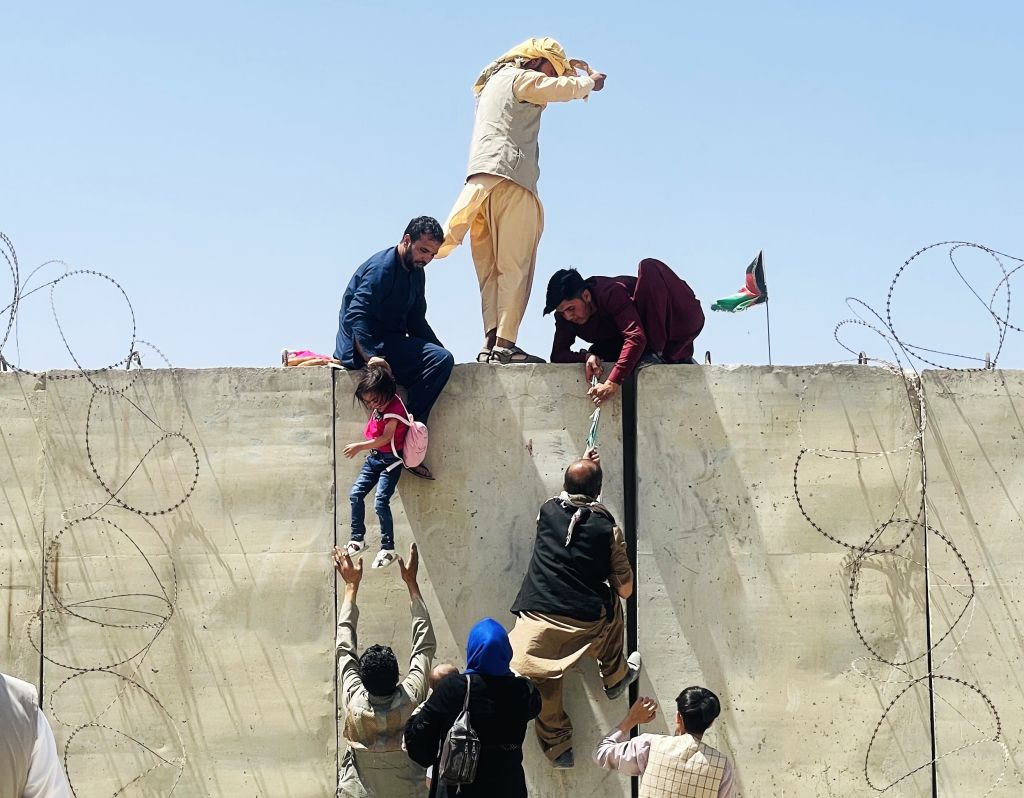
President Joe Biden
declared on 8 July that the US withdrawal from Afghanistan would be a responsible one, the Taliban would not be able to conquer the country, and America’s departure from Kabul would not be similar to the chaotic departure from Saigon. Events have proved him wrong. The Taliban’s easy takeover of most of the country and the confronting scenes of the US and allies’ evacuation at Kabul airport, with Afghans desperately hanging off a departing American plane and some falling to their deaths, have vindicated Biden’s critics.
The US defeat by a poorly trained, fed, clothed and equipped Taliban reflects very badly not only on America’s power but also on the world’s supposedly most powerful military alliance, NATO. The Afghanistan debacle is worse than the defeat in Vietnam, as NATO was not formally involved in that conflict. The Taliban’s triumph and the speed with which the militia overwhelmed the Afghan National Security Forces have serious implications for both Afghanistan and the United States.
The return of the Taliban to power signals a failure in the fundamental objectives for which the US and its allies invaded Afghanistan and fought the Taliban at the cost of staggering amounts of blood and money. The Taliban’s ideology based on their strict interpretation of Sunni Islam has not changed. They have been very clear and consistent on this. The group’s application of its version of Islam can only spawn a theocratic order. It would be similar to what the group instituted when it was in power from 1996 until it was toppled by the US and its Afghan allies in late 2001 for hosting al-Qaeda and enabling it to execute its 9/11 attacks on the US.
However, the Taliban leadership has lately shown a more nuanced approach to dealing with the outside world. Backed and guided by Pakistan, specifically its powerful Inter-Services Intelligence agency, The Taliban’s leaders have learned that to establish an enduring Islamic emirate, they need international recognition and assistance. The group’s prominent figures, including its supreme leader Hibatullah Akhundzada, deputy leader Abdul Ghani Baradar and main spokesman Zabihullah Mujahid, have found it expedient to engage in a friendly public relations campaign.
They have publicly expressed a preference for an inclusive government and promised to respect human rights by protecting all minorities and allowing women to work and study. They have also said that they will be open to impartial media criticism, will prevent Afghan soil from being used for hostile actions against any other country, and want to have political, economic and trade relations with all friendly countries. Yet they have
made it clear that whatever policy measures they adopt will conform with their strict version of Sunni Islam and the Islamic legal system, sharia law.
The problem is that, while the Taliban leaders may have become more worldly, tactful and cognisant of their past mistakes, most of their commanders and fighters on the ground have had no more than elementary schooling in Islam in Pakistani madrassas. They haven’t experienced much more than fighting and a rural existence, as evidenced by their unruly behaviour over the past few weeks in provincial capitals and in Kabul. Horrifying eyewitness accounts and video images have already emerged. Only time will tell whether the leadership will prevail over the rank and file, or whether the Taliban will be as fractured as the regime they’ve toppled.
Meanwhile, the Taliban can’t be expected to dispense strong goodwill towards the US and its NATO and Afghan allies, whose operations have killed thousands of Taliban fighters and kept the group out of power, fighting for its survival for two decades. From the Taliban’s perspective, and many analysts agree, they have defeated and humiliated the most powerful state and military alliance in the world. They feel empowered as an Islamic revolutionary force, as did the Afghan Islamic resistance forces, the mujahideen and al-Qaeda, after the Soviet retreat from Afghanistan in the 1980s.
Whatever shape a Taliban government takes, it will be dominated by the militia and its ideological disposition. It can expect recognition from Pakistan as a given, but also possibly from Russia and China, whose embassies continue to function in Kabul, while the US and many of its allied missions are closing shop. There’s no doubt that these two powers are very pleased to see America’s humiliation and ousting from the region, as are Iran and other adversaries including such violent extremist groups as al-Qaeda (with which the Taliban still maintain close links) and Islamic State. Twenty years of US-led NATO involvement started with the objective of eliminating the Taliban and al-Qaeda but has now ended with both in command of Afghanistan. The situation could not be more damaging to Afghanistan and the US.
Meanwhile, it would be a mistake to assume that there will be no opposition to the Taliban’s medievalist theocracy. A resistance is already gathering pace for a more progressive and dignified Afghanistan in Panjshir province, 60 kilometres north of Kabul. It is led by
Ahmad Massoud, the son of the late legendary mujahideen commander Ahmad Shah Massoud, who valiantly fought the Soviets and then the Pakistan-backed Taliban and al-Qaeda alliance. There have also already been anti-Taliban public protests in Kabul and eastern Afghanistan, which have been confronted by Taliban repression. The Taliban certainly have the momentum, but the conflict isn’t over.
 Print This Post
Print This Post